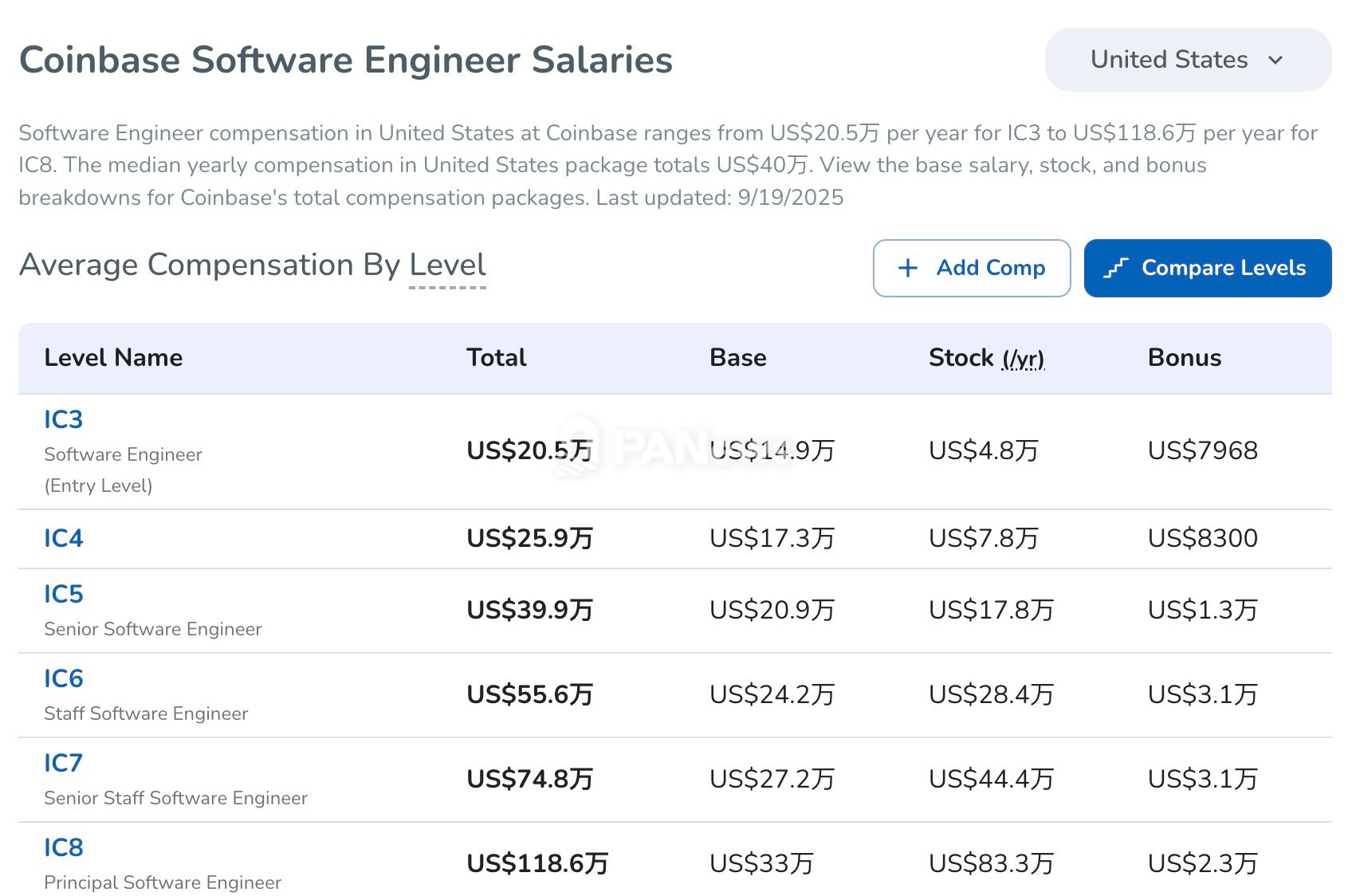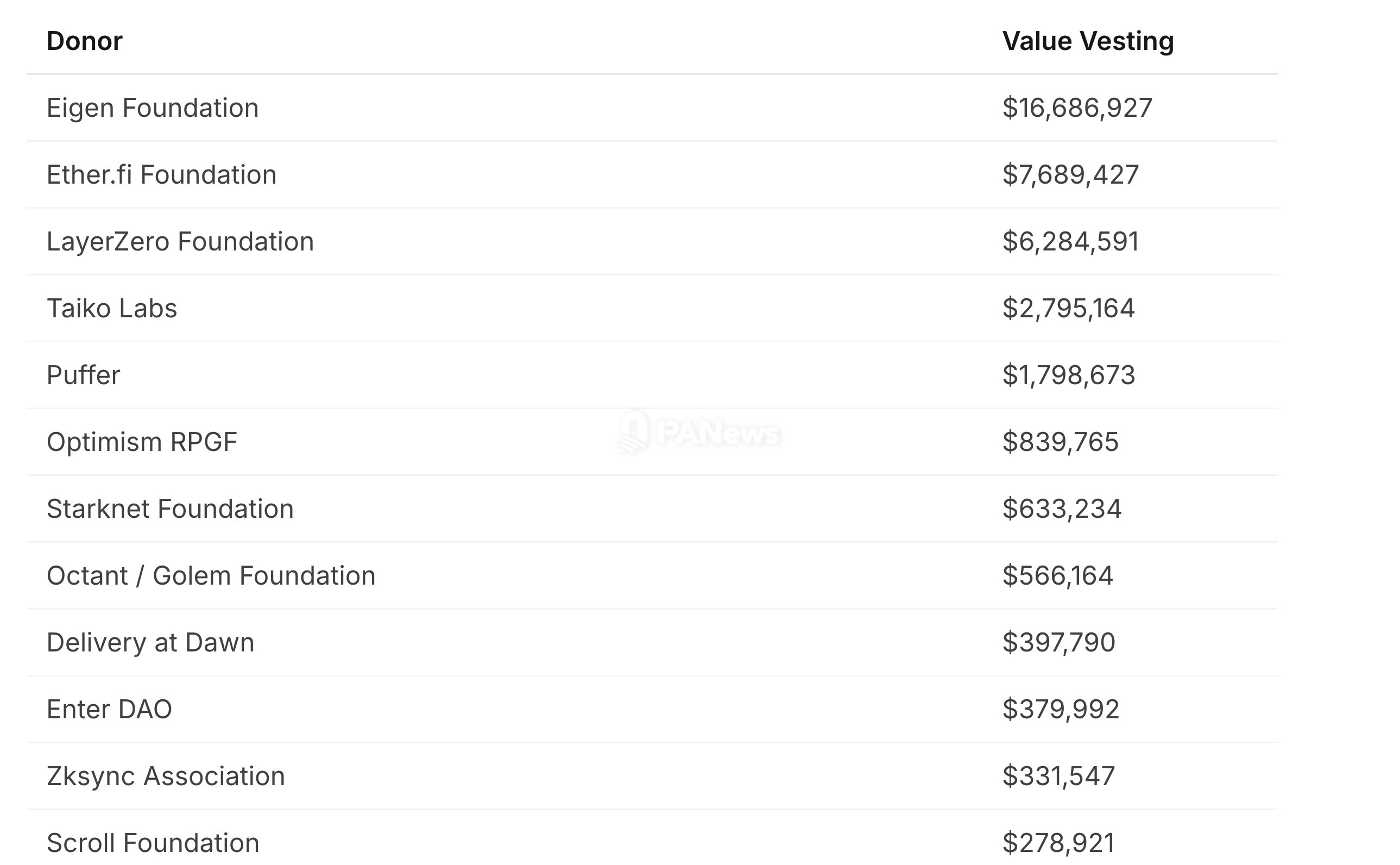
Author: Zen, PANews
In the new era of the digital economy, Ethereum is not just an ordinary blockchain, but an infrastructure that is reconstructing global value transfer and trust rules. The people maintaining this infrastructure are a few hundred engineers who are deeply engaged in the core of the protocol, guarding consensus and security day and night.
Contrary to public perception, these developers who build the top-tier ecosystem are earning relatively "low" salaries.
Ethereum Core Developers Generating Power with Love? Income Only Half of Market Rate
Recently, a survey report from Protocol Guild revealed that the median annual salary of core software developers maintaining and improving the Ethereum blockchain is $140,000, significantly lower than the industry average, with their total income from salary and bonuses being 50-60% below market rates. Meanwhile, most developers in the Ethereum environment have not received equity or token incentives, with the typical equity reward median being zero.
According to data from Levels.fyi, including base salary and any potential stock compensation and bonuses, the median annual salary for software engineers at the Solana Foundation is $800,000; Aptos Labs software engineers in the U.S. have a median total compensation of about $330,000; and software engineers at Mysten Labs (the company behind Sui) have a median annual salary of about $378,000.
Levels.fyi is a transparency platform for salaries and job levels aimed at tech professionals, aggregating and displaying the job level systems and salary mappings of various blockchain companies.
Additionally, developers at well-known blockchains like Avalanche and Polkadot generally earn higher salaries than those at Ethereum, often accompanied by substantial token or equity incentives. For instance, mainstream exchanges like Coinbase have a median annual salary of $400,000 for software engineers in the U.S., with even entry-level software engineers earning a base salary of $149,000, plus approximately $56,000 in stock and bonuses.

It is evident that Ethereum core developers are at a significant salary disadvantage. However, as developers of the top-tier blockchain, they are usually very competitive in the talent market.
When they receive job offers from other blockchain projects, the average offer is nearly $360,000, with a median of $300,000, effectively doubling their current salaries. Among the 111 responses received by Protocol Guild, 42 respondents collectively received 108 job offers, primarily from Layer 2 and other Layer 1 public chain projects.
High Salary Temptations, Yet Ethereum Developers Generally Unmoved
However, despite the high salaries in the job market, most Ethereum core developers still choose to stay within the ecosystem.
A sense of mission and impact are important motivations for retention. The report and feedback from respondents indicate that many core developers see themselves as maintainers of "public goods" (protocol-level infrastructure) — they believe that Ethereum's technological influence and public value outweigh the short-term interests of a single company.
At the same time, research-oriented and protocol design talents have high internal value and growth paths within the Ethereum ecosystem. The high complexity of the Ethereum ecosystem also provides engineers with rare technical challenges and opportunities for academic publication and project leadership.
Moreover, although their work income is relatively low, many core contributors can compensate through multiple income streams, such as consulting contracts, research grants, external audits, short-term hackathons, and teaching and research remuneration.
Additionally, Protocol Guild provides direct subsidies to developers through long-term vested tokens on-chain, with a median reaching about $67,000, bringing the overall median income post-merger to about $207,000. This is a substantial compensation for many, reducing some of the salary gap.
The survey shows that 59% of Protocol Guild members believe that the organization is crucial for their retention in the Ethereum ecosystem. Developers generally have a positive attitude towards PG's funding model, viewing it as a "equity package" to compensate for insufficient income and provide career security.
The Protocol Guild report also mentions that while many external offers appear higher on paper, they often include a large amount of tokens or high-risk equity. Respondents consider factors such as lock-up periods, market volatility, project long-term survival rates, and compliance risks. Therefore, some prefer to accept long-term incentives that are closely tied to the Ethereum ecosystem and relatively stable, such as the subsidies provided by Protocol Guild, rather than betting their careers on uncertain token values.
Providing Over $32 Million in "Subsidies," How Protocol Guild Operates
Protocol Guild is a decentralized funding organization focused on supporting Ethereum core development, established to fill the gaps in the developer compensation system. PG does not directly employ developers but acts as a "long-term incentive pool," providing equity-like supplementary income to core contributors through donations and token commitments from ecosystem projects. Currently, the number of core Ethereum developers is about 200-300, with approximately 190 being members of Protocol Guild.
Its operation mainly relies on the so-called "1% commitment" mechanism: participating projects, as "donors," lock 1% of their total token issuance to Protocol Guild, which is periodically distributed to core developers through smart contracts over a four-year vesting period.
So far, Ethereum ecosystem projects such as EigenLayer, Ether.fi, Taiko, and Puffer have committed to injecting 1% of their tokens into Protocol Guild. Additionally, the well-known asset management firm VanEck has announced that it will donate 10% of its Ethereum ETF profits to Protocol Guild.
These funds are aggregated and distributed to developers based on their position weight and tenure through a transparent on-chain algorithm, ideally linked to the long-term success of the Ethereum ecosystem. The founding team of Protocol Guild emphasizes that this is not charity, but an economic infrastructure that aligns developer incentives with network development.
In terms of effectiveness, since its launch in 2022, Protocol Guild has distributed over $32 million to Ethereum core developers. This funding accounts for about one-third of many developers' total income, playing a crucial role in their ability to continue contributing to development.
However, the Protocol Guild model still faces challenges, as the current donation projects and fund scale rely on a few institutions, with only three major foundations providing nearly all funding commitments. Whether it can continue to expand in the future will require community efforts.

免责声明:本文章仅代表作者个人观点,不代表本平台的立场和观点。本文章仅供信息分享,不构成对任何人的任何投资建议。用户与作者之间的任何争议,与本平台无关。如网页中刊载的文章或图片涉及侵权,请提供相关的权利证明和身份证明发送邮件到support@aicoin.com,本平台相关工作人员将会进行核查。




